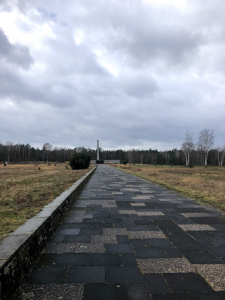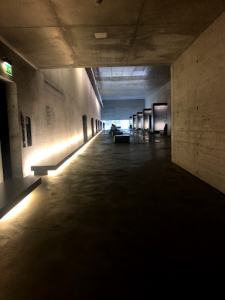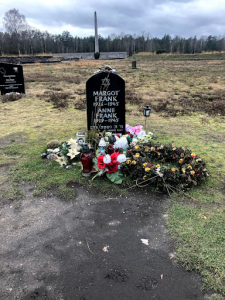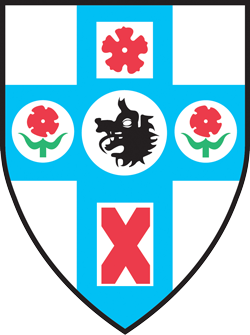On April 15th, 1945 British troops of the 11th Armoured Division liberated the Nazi concentration camp Bergen-Belsen. Schools across the country were invited to join the unique commemorative initiative to mark the 75th anniversary of the liberation and be a part of this important national moment.
On 12th February myself, Miss Fradgley and Monique Dhillon went on a one day trip to visit the concentration camp of Bergen Belsen in Germany. The trip was part of a four-part course which enables to provide young children like ourselves the opportunity to reflect upon the significance of Bergen-Belsen, its liberation, and its continuing legacy, and to explore the individual stories of those who experienced the site first hand. The seminars were run by educators from UCL and the Holocaust Educational Trust who supervised us whilst the day trip we had our own tour guide from the memorial site.
Bergen-Belson was first established in 1940 by German military authorities to be used as a Prisoner of War camp which over the course of 10 years it was home to many different people. Even though it was liberated in 1945, the camp was still in use up until 1950. Nevertheless, the biggest killer in the camp was the disease that the British troops had sought out when they came to liberate it. The camp had been struck by typhus which killed huge amounts of people including Anne Frank and her sister Margot.
During the course of the day, we were able to walk around the museum which went into huge amounts of detail about the camp and the role that it played. As a group, we walked around where the old buildings used to be, visited the mass graves where the people were buried and saw the marked graves which were built by survivors for their families. At the end of the day, we took part in a memorial service to heighten the importance of the place we were standing in and was asked to place a white pebble on any tombstone of our choice whilst saying a prayer. This was a Jewish tradition to honour the deceased and to let them know that they will always be a part of our life.
The trip itself was an emotional yet educational journey and has widened our eyes to privileged lives we live today in this world as we realised that we should be more grateful for the little things we hardly think about.
“Earth conceal not the blood, shed on thee”
Jewish Memorial inscription
By Leah James





